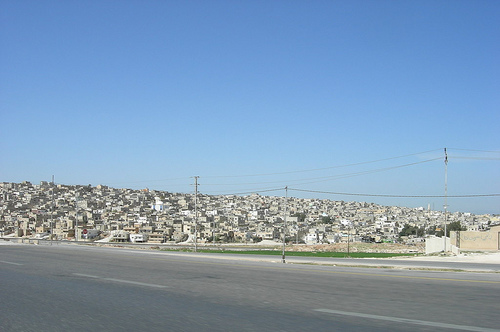

Irbid (Arabic: إربد, in ancient times Arabella,
Beth Arbel) is a city in Jordan. The administrative center of Irbid
governorate. The third largest city in the country after Amman and
Ez-Zarka and the second largest (after Amman) agglomeration, with a
population of about 660,000 people. The city has been inhabited
since the Bronze Age.
Located 70 km north of Amman, at an altitude of 583 m above sea
level. According to 2007 data, the population is 327,543. It is an
important transportation hub between Amman - in the south, Syria -
in the north and the city of Al-Mafraq - in the east.
In Irbid, there are such large universities as Yarmouk and Jordan
University of Science and Technology. According to 2007 data, about
70,000 students living in 10 universities, institutes and colleges
lived in the city, of which about 8,000 were foreign students from
47 states.
The former Prime Ministers of Jordan, Abdelrauf al-Rawabde and Wasfi
al-Tal, were born in Irbid.
Irbid is an ancient town in Jordan. It is
famous for several layers of various civilization that left rich
archeological record of its extended history. Tourism is not very
pronounced. Irbid is home to museums worth seeing. At Yarmouk
University you can find the Museum of Jordanian Heritage with an
overview of the prehistoric and historical development of the
country. The new Archaeological Museum was opened in 2007 in a
renovated Ottoman house in the city center (near police station,
Tell Irbid).
Irbid has numerous hotels of different categories and offers a
starting point for trips to the northern Jordan Valley or to Umm
Qais (Gadara), Gerasa, Kufr Dscha'yiz, Huwarra, Abila, Pella,
Adschlun (Qala'at er-Rabad), Umm al-Jimal and to Syria.
Irbid Archaeological Museum (Irbid)
Al-Ma'amun Street
Open: 8am- 2pm Sat- Thu
Museum of Jordanian Heritage (Irbid)
Natural History Museum (Irbid)
Open: 10am- 5pm (winter) Wed- Mon
10am- 3pm (summer) Wed- Mon